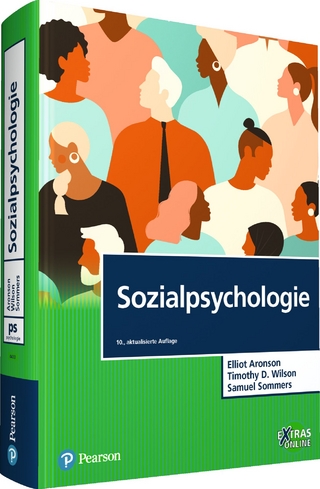
Judges, Decision Making and Empathy
Insights from the Bench
Seiten
2025
Routledge (Verlag)
978-1-032-90213-5 (ISBN)
Routledge (Verlag)
978-1-032-90213-5 (ISBN)
- Noch nicht erschienen (ca. April 2025)
- Versandkostenfrei innerhalb Deutschlands
- Auch auf Rechnung
- Verfügbarkeit in der Filiale vor Ort prüfen
- Artikel merken
This book presents empirical research uncovering the views and experiences of Polish judges regarding the utilization of empathy in their work. It offers an in-depth examination of judges’ opinions, collected through an empirical study involving in-depth interviews.
This book presents empirical research uncovering the views and experiences of Polish judges regarding the utilization of empathy in their work. Whilst there is a growing interest in the role of empathy in judicial decision making, there is little research on how judges themselves approach this issue. This volume offers an alternative to the usual focus on common law jurisdictions. It adopts a perspective that underscores the impact of professional pressures on judges’ empathic abilities, leading to a form of “empathy labor” influenced by the unique characteristics of the judicial profession. It offers an in-depth examination of judges’ opinions, collected through an empirical study involving in-depth interviews. The narrative delves into real cases and judicial behaviors discussed by judges, providing reference to relevant literature from other jurisdictions. The core finding of the study reveals that while judges may differ in their approaches to empathy in a judicial context, many of their practices and strategies can be linked to empathy-like phenomena. The findings also substantiate the claim that empathy used by judges is not the same as judicial empathy, which covers empathic abilities integrated into performing the judicial role. This applied theoretical perspective of “empathy labor” offers an intriguing view of how the occupational context influences judges’ empathic inclinations throughout their careers. In addition to demonstrating how judges understand the role of empathy in their work, the book outlines a scenario for empathy training based on their experiences and expectations. Presenting an original approach to studying the role of empathy in judicial decision making, the book will be of interest to academics and researchers working in the areas of philosophy of law, legal theory, sociology of law, psychology of law and emotions studies.
This book presents empirical research uncovering the views and experiences of Polish judges regarding the utilization of empathy in their work. Whilst there is a growing interest in the role of empathy in judicial decision making, there is little research on how judges themselves approach this issue. This volume offers an alternative to the usual focus on common law jurisdictions. It adopts a perspective that underscores the impact of professional pressures on judges’ empathic abilities, leading to a form of “empathy labor” influenced by the unique characteristics of the judicial profession. It offers an in-depth examination of judges’ opinions, collected through an empirical study involving in-depth interviews. The narrative delves into real cases and judicial behaviors discussed by judges, providing reference to relevant literature from other jurisdictions. The core finding of the study reveals that while judges may differ in their approaches to empathy in a judicial context, many of their practices and strategies can be linked to empathy-like phenomena. The findings also substantiate the claim that empathy used by judges is not the same as judicial empathy, which covers empathic abilities integrated into performing the judicial role. This applied theoretical perspective of “empathy labor” offers an intriguing view of how the occupational context influences judges’ empathic inclinations throughout their careers. In addition to demonstrating how judges understand the role of empathy in their work, the book outlines a scenario for empathy training based on their experiences and expectations. Presenting an original approach to studying the role of empathy in judicial decision making, the book will be of interest to academics and researchers working in the areas of philosophy of law, legal theory, sociology of law, psychology of law and emotions studies.
Mateusz Stępień is Professor at the Jagiellonian University, Krakow and Head of the Department of Sociology of Law Ewa Wilczek-Rużyczka is Professor at the Andrzej Frycz Modrzewski Krakow University and Dean of the Faculty of Psychology, Pedagogy, and Humanities
Introduction: Filling in a Partial Image of Empathy in Judging; 1. Empathy in the Legal Context: Advances and Gaps in Current Research; 2. Methodology, Study Context, And Challenges; 3. Judges and the Struggle to Understand Empathy; 4. Extracting the role and place of empathy in judicial decision-making: The judge’s perspective; 5. Empathy and Impartiality: “Friends” or “Foes”? 6. Developing Judicial Empathy Through Training Methods: A Psychological Perspective; Conclusion
| Erscheint lt. Verlag | 8.4.2025 |
|---|---|
| Reihe/Serie | Routledge Research in Legal Philosophy |
| Zusatzinfo | 1 Tables, black and white |
| Verlagsort | London |
| Sprache | englisch |
| Maße | 156 x 234 mm |
| Themenwelt | Geisteswissenschaften ► Psychologie ► Sozialpsychologie |
| Recht / Steuern ► Allgemeines / Lexika | |
| Recht / Steuern ► Arbeits- / Sozialrecht ► Sozialrecht | |
| Recht / Steuern ► EU / Internationales Recht | |
| ISBN-10 | 1-032-90213-2 / 1032902132 |
| ISBN-13 | 978-1-032-90213-5 / 9781032902135 |
| Zustand | Neuware |
| Haben Sie eine Frage zum Produkt? |
Mehr entdecken
aus dem Bereich
aus dem Bereich
Buch | Softcover (2024)
Heyne (Verlag)
12,00 €


